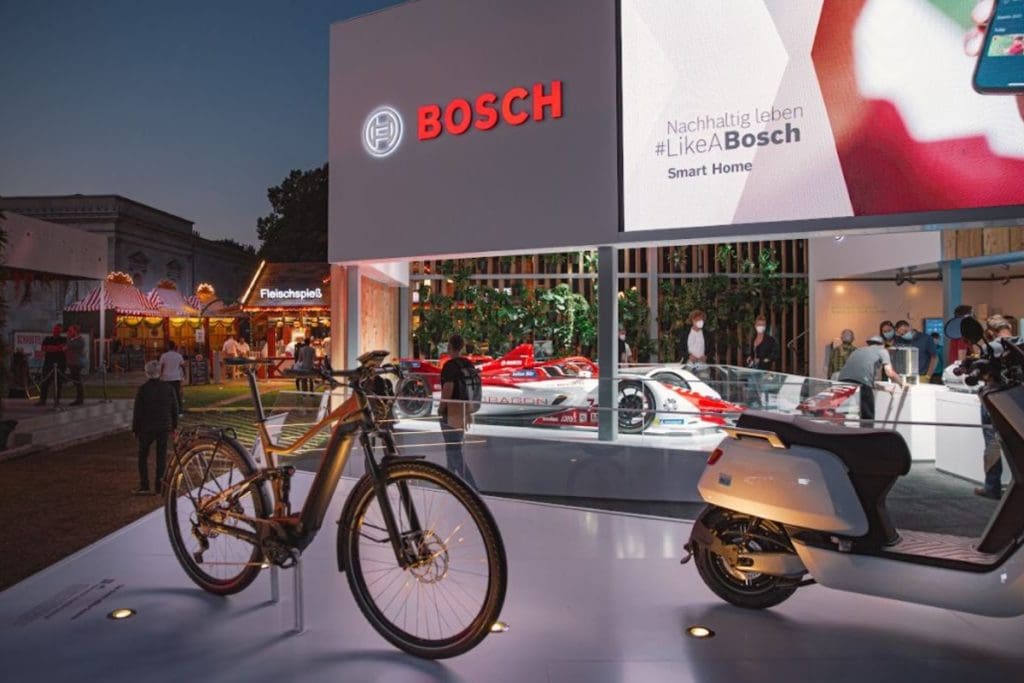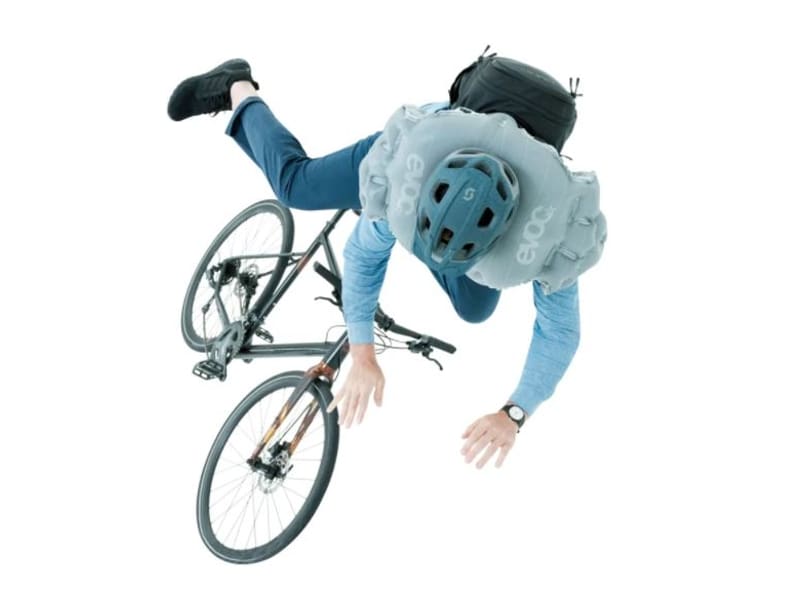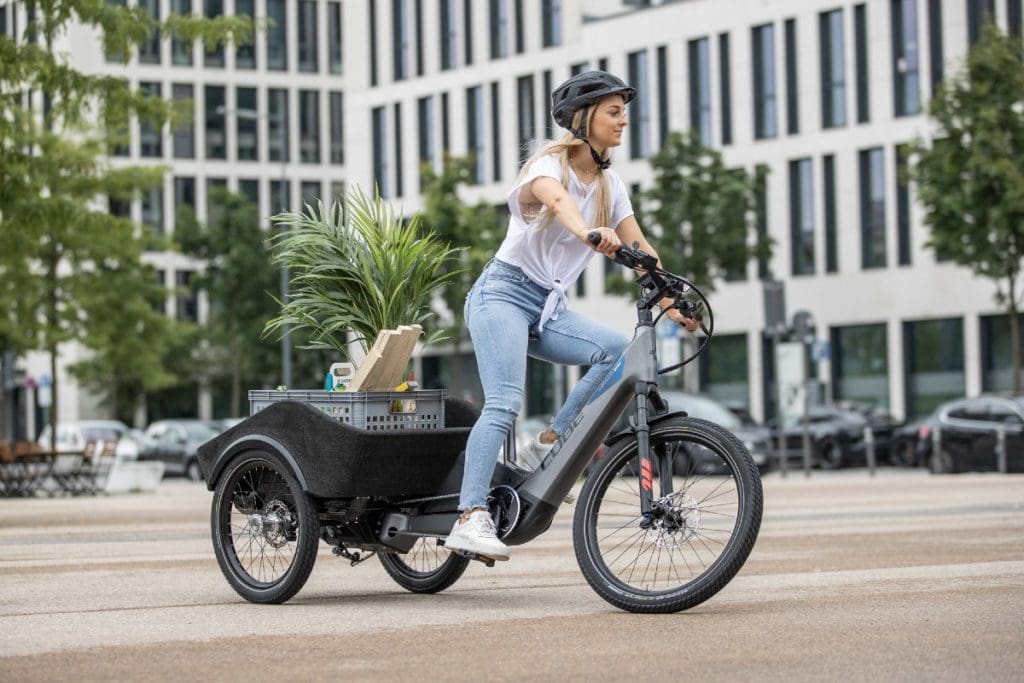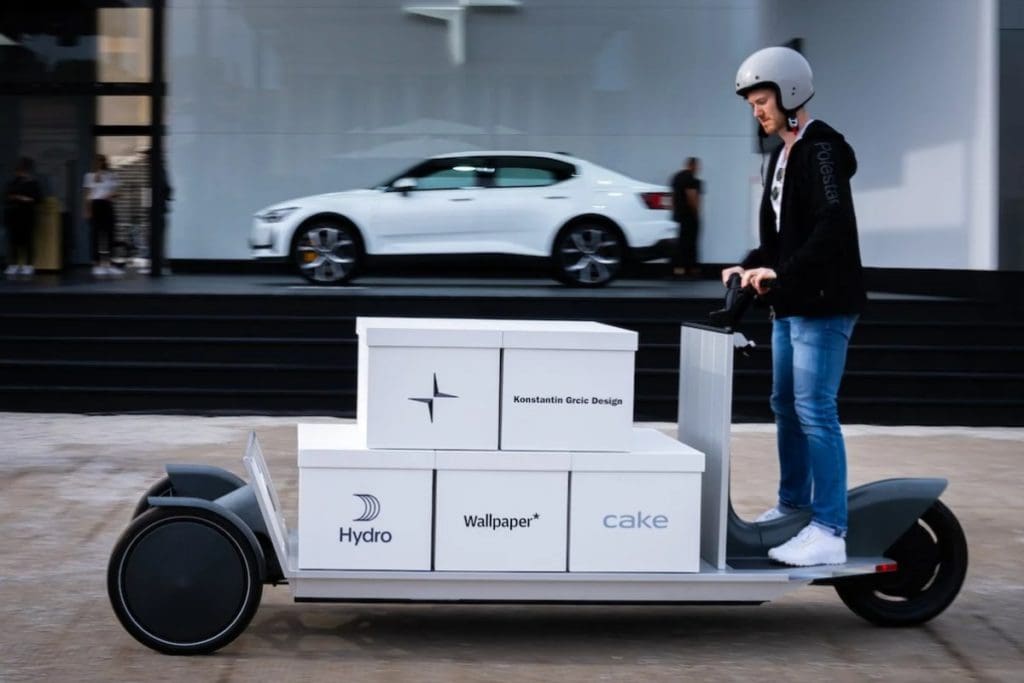IAA Mobility ‘Essential to Bridge Rift Between Bikes and Cars’

Organisers of the revamped International Mobility Show Germany (IAA Mobility) have emphasised the event’s value in fostering greater harmony between automobiles, bicycles and other road users.
The biennial IAA event was rebadged in 2021 as IAA Mobility to incorporate micromobility exhibitors for the first time, attracting a considerable number of e-bike and e-scooter manufacturers.
In a statement from event organiser Messe Munich, its Managing Director of the Consumer Good Division, Tobias Grober, suggested combining automobiles and other forms of mobility was essential to breaking down the polarisation and between motorists and other road users.
IAA 2021 was held from 7th – 12th September, just days after this year’s instalment of Eurobike, which has long been Europe’s biggest bicycle trade show and one of the two biggest in the world.
IAA’s expansion into micromobility, sparked by the emergence of e-bikes and e-scooters, brought inevitable speculation about the capacity of both events to exist side by side and further commentary about which would ultimately prevail as Europe’s preeminent stage for the bicycle and micromobility industry.
Mr Grober acknowledges there was some resistance to IAA Mobility’s merger of automobile and micromobility, from industry stakeholders who “like to adhere to the traditional framing of cars versus bikes, pedestrians versus cyclists etc”.
“Precisely this polarisation will get us nowhere as a society. Only an interplay of all these mobility modalities can move us forward,” he says.
“For rural mobility, for example, different solutions are needed compared with metropolitan areas. And that is precisely why, especially now after the first IAA Mobility, it is more important than ever that it is not ‘either bike or car’, but ‘bike and car’. We need good judgments for the best solution in each environment.”
There was even split opinions among bike industry leaders about the suitability of incorporating micromobility into the premier automotive event.
However, Messe Munich claimed the majority of bike exhibitors at IAA 2021 believed “if a company or brand can make a substantial contribution to the discussion about the future of mobility, then this opportunity must be used here in Munich, on the largest mobility platform the world currently has to offer”.
“The many market participants are only now beginning to understand that we really want to bring all mobility players together here on one strong platform,” Mr Grober said.”
“The bicycle sector can and must also be an important part of this.”
He said some bicycle exhibitors at IAA Mobility 2021 believe greater integration of different categories of exhibitors in the B2C, B2B and open sections, ensuring even less division between automobiles, bikes, IT and infrastructure.
Messe Munich’s statement included quotes from four of the bike exhibitors at this year’s event, Cannondale-Cycling Sports Group Europe, Internetstores Group, Pierer E-Bikes Deutschland, Riese und Müller. Predictably, the quotes from all four are positive about their involvement in the inaugural IAA Mobility.
Show highlights
Highlights from micromobility’s debut at IAA included the world premiere of the COMMUTE A.I.R. Pro 18 airbag backpack from EVOC Sports.
The world’s first bike backpack with integrated airbag technology seeks to protect a rider’s neck, shoulders, collarbones and chest during a crash. The sensor-controlled airbag takes 0.2 seconds to inflate to a volume of 18 litres, reducing the impact forces and braking acceleration (head injury criterion) on the cyclist by up to 80%.
A USB-chargeable sensory unit analyses the position of the backpack up to 1,100 times per second and deploys the inflating cartridge when it detects criteria indicative of a crash.
The backpack also incorporates a back protector.

Cube Cargo Bike
Cube unveiled its Concept Dynamic Cargo bike designed in collaboration with fellow Bavarian manufacturer BMW.
An innovative tilt mechanism allows the rider and front section of the e-bike to lean around corners like a conventional bike, while the cargo platform and load stay flat. Cube says it “keeps your cargo stable and secure whilst maintaining the natural feel of a conventional bike”.

Polestar’s own cargo solution
Electric performance car manufacturer Polestar exhibited its own solution for cargo transportation, with its Polestar Re:Move cargo bike prototype.
The Re:Move project is a collaboration between Polestar, designer Konstantin Grcic aluminium manufacturer Hydro and the electric motorbike pioneer CAKE, to meet the increasing demand for online shopping and door-to-door delivery services. The prototype exhibited at IAA Mobility can carry up to 180kg and has a battery capacity of 2.2kWh. Like the Cube prototype, the Re:Move bike’s aluminium chassis has a tilting mechanism so the bike can lean into corners, to improve stability and manoeuvrability.
Stromer captured attention with its ST2022 concept e-Bike with a battery capacity of 1.4kWh, more than double current e-bike battery capacities.

Join the Conversation:
Can Eurobike and IAA Mobility continue to coexist and do you believe one with emerge above the other as Europe’s premier trade show for bikes and micromobility?
